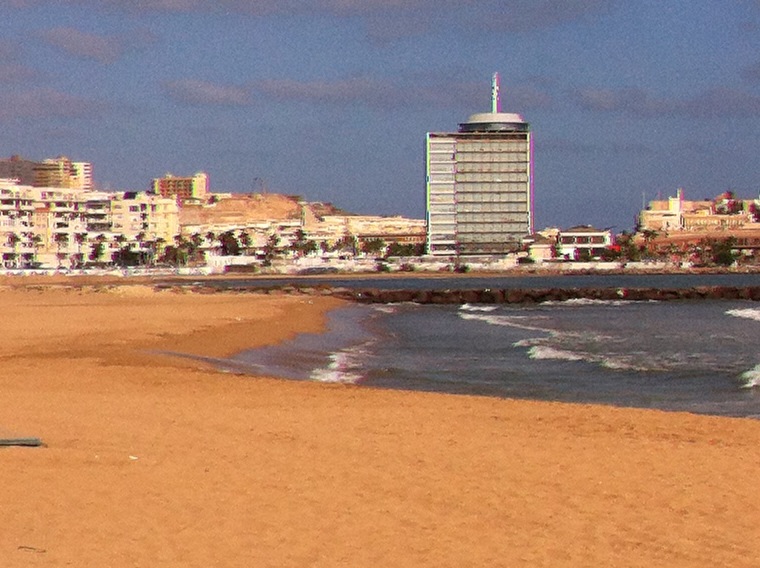 The DVD was in a pretty case. La Oficina de Turismo had spent a fair bit. The little film sang the praises of this beautiful part of Spain - interesting architecture, good restaurants, a casino, pleasant hotels, an ancient fortress, sandy Mediterranean beaches, idyllic scenes. A great place for my birthday weekend.
The DVD was in a pretty case. La Oficina de Turismo had spent a fair bit. The little film sang the praises of this beautiful part of Spain - interesting architecture, good restaurants, a casino, pleasant hotels, an ancient fortress, sandy Mediterranean beaches, idyllic scenes. A great place for my birthday weekend.
Promotion over, we flicked across to a Spanish news channel. 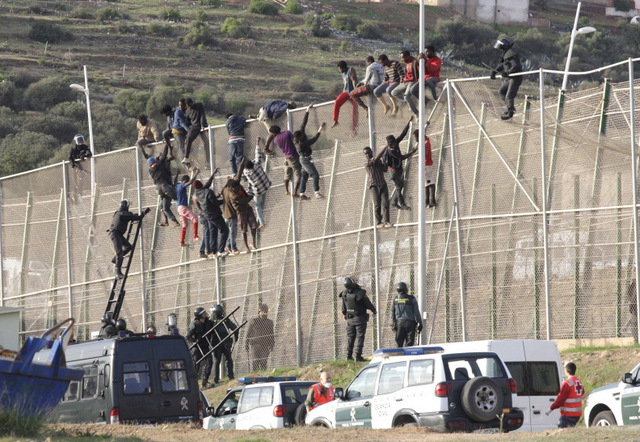 Terrible scenes of border controls under siege. October 22nd. Desperate refugees after travelling thousands of miles, climbing fences, stuck on the "concertina" loops of barbed wire, falling. Almost reaching their goal, almost arriving in Spain, but to a less than welcoming reception. The Guardia Civil's job is to keep them out, to protect the border. Fights ensued. People were injured. Earlier this year, in the same place, people died.
Terrible scenes of border controls under siege. October 22nd. Desperate refugees after travelling thousands of miles, climbing fences, stuck on the "concertina" loops of barbed wire, falling. Almost reaching their goal, almost arriving in Spain, but to a less than welcoming reception. The Guardia Civil's job is to keep them out, to protect the border. Fights ensued. People were injured. Earlier this year, in the same place, people died.
So less than a fortnight later here we are in Melilla, in two places at the same time. The site of the promotional DVD, and the site of the news stories. We are simultaneously in two contintents - geographically we are standing in the huge continent of Africa. Politically we are within Spain's borders, so we are in Europe. Melilla - neither one thing nor another, or a strange mixture of both. Destination for tourists, and site of violent border clashes. Two sides to one small place.
And it feels as though we are in two places. The residents are predominantly Spanish Muslims with a multitude of backgrounds and cultures. A small minority are the families of the large corps of Guardia Civil, predominantly Spanish Christians. There are tourists, though not many. Melilla covers less than 5 square miles. It has the beaches, the shops, the restaurants, that the DVD described. But the DVD only used the word "Africa" once - and the implication was that you could VISIT Africa from Melilla, there was no acknowledgement of being physically in the African continent, nor of the fascinating multi-cultural experience that is Melilla.
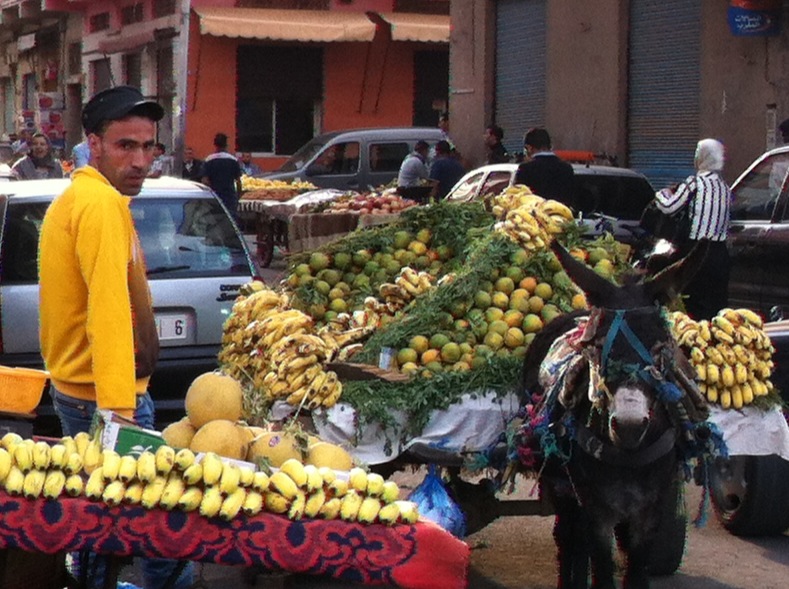 Surrounded on three sides by Morocco, visiting Melilla is the "easy" way to sample Moroccan food and culture, while remaining comfortably in a European, Spanish-speaking, euro-zone country. You can walk through the border controls into Morocco and on the other side a 5€ taxi takes you ten kilometres to Nador, where you can spend a few hours in the souk, fingering rugs and wall-hangings, smelling the spices, tasting the olives, and diving into a tetería to lounge on cushions and drink sweet mint tea, before retreating safely to your European hotel back on the Spanish side of the barbed wire.
Surrounded on three sides by Morocco, visiting Melilla is the "easy" way to sample Moroccan food and culture, while remaining comfortably in a European, Spanish-speaking, euro-zone country. You can walk through the border controls into Morocco and on the other side a 5€ taxi takes you ten kilometres to Nador, where you can spend a few hours in the souk, fingering rugs and wall-hangings, smelling the spices, tasting the olives, and diving into a tetería to lounge on cushions and drink sweet mint tea, before retreating safely to your European hotel back on the Spanish side of the barbed wire.
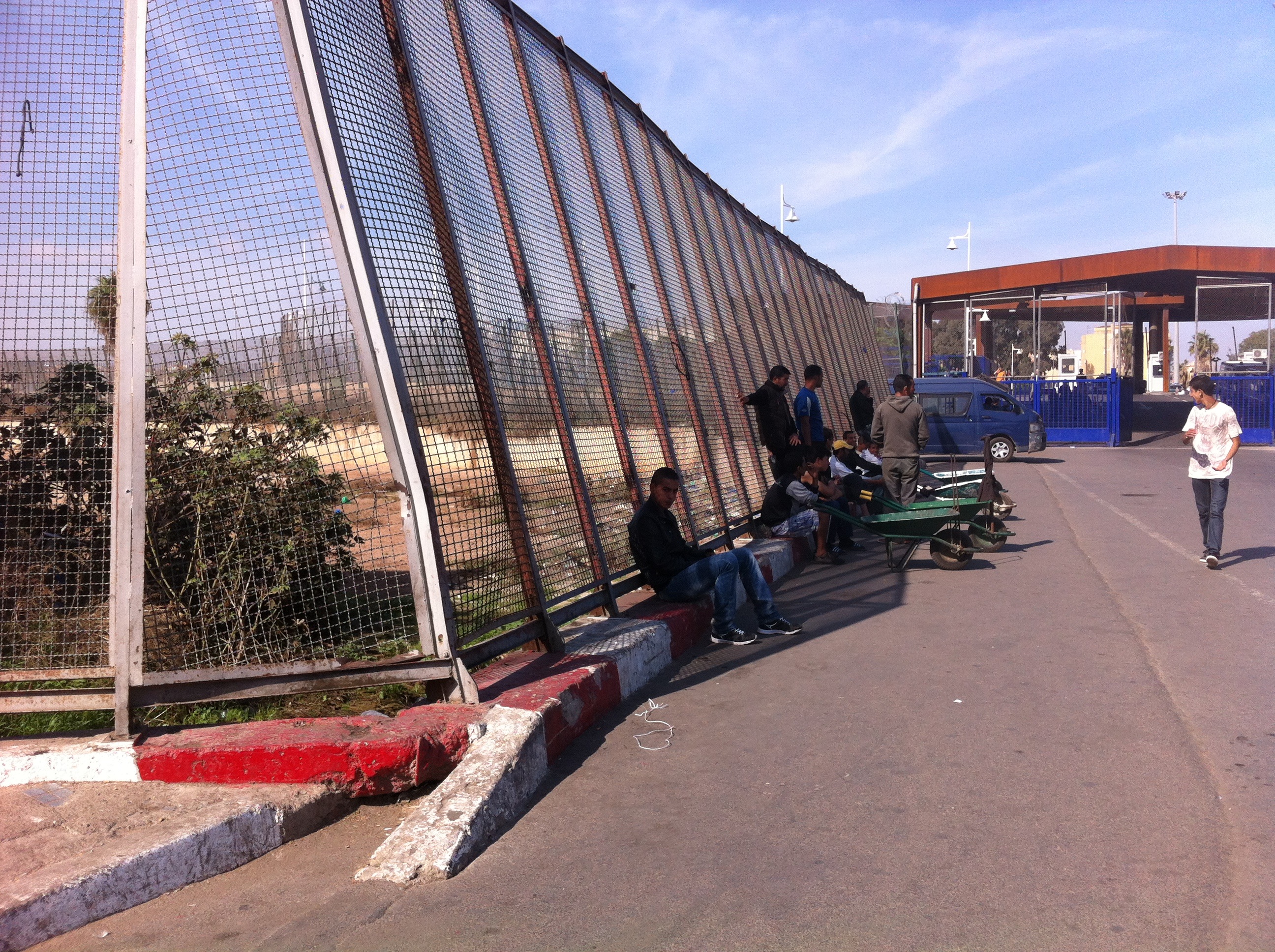 In no-man's land in the border-crossing between Morocco and Spain, enterprising boys sit with wheel-barrows waiting for the women returning from Melilla with their goods to sell in the zoco (souk) of Nador. Biscuits from the Día supermarket, soap, chocolate, some tins, and cartons of milk, to sell from a blanket for a few dirhams profit, enough to scrape a minimal living. Enough to give a boy a dirham to fill his barrow with her bags to take them to the waiting taxis.
In no-man's land in the border-crossing between Morocco and Spain, enterprising boys sit with wheel-barrows waiting for the women returning from Melilla with their goods to sell in the zoco (souk) of Nador. Biscuits from the Día supermarket, soap, chocolate, some tins, and cartons of milk, to sell from a blanket for a few dirhams profit, enough to scrape a minimal living. Enough to give a boy a dirham to fill his barrow with her bags to take them to the waiting taxis.
One Moroccan woman had already begun to put her bags into a battered taxi. Unaware, we approached the line of cars, not noticing the driver removing her shopping and putting her back on the pavement in favour of us. Visitors pay 5€ to travel to Nador - she would only have paid 20 dirhams, about 2€. Enough for the driver if no rich tourists are in sight, but we are the better option for him and she is left behind. Only once underway do we piece together the story - too late to offer to share our ride.
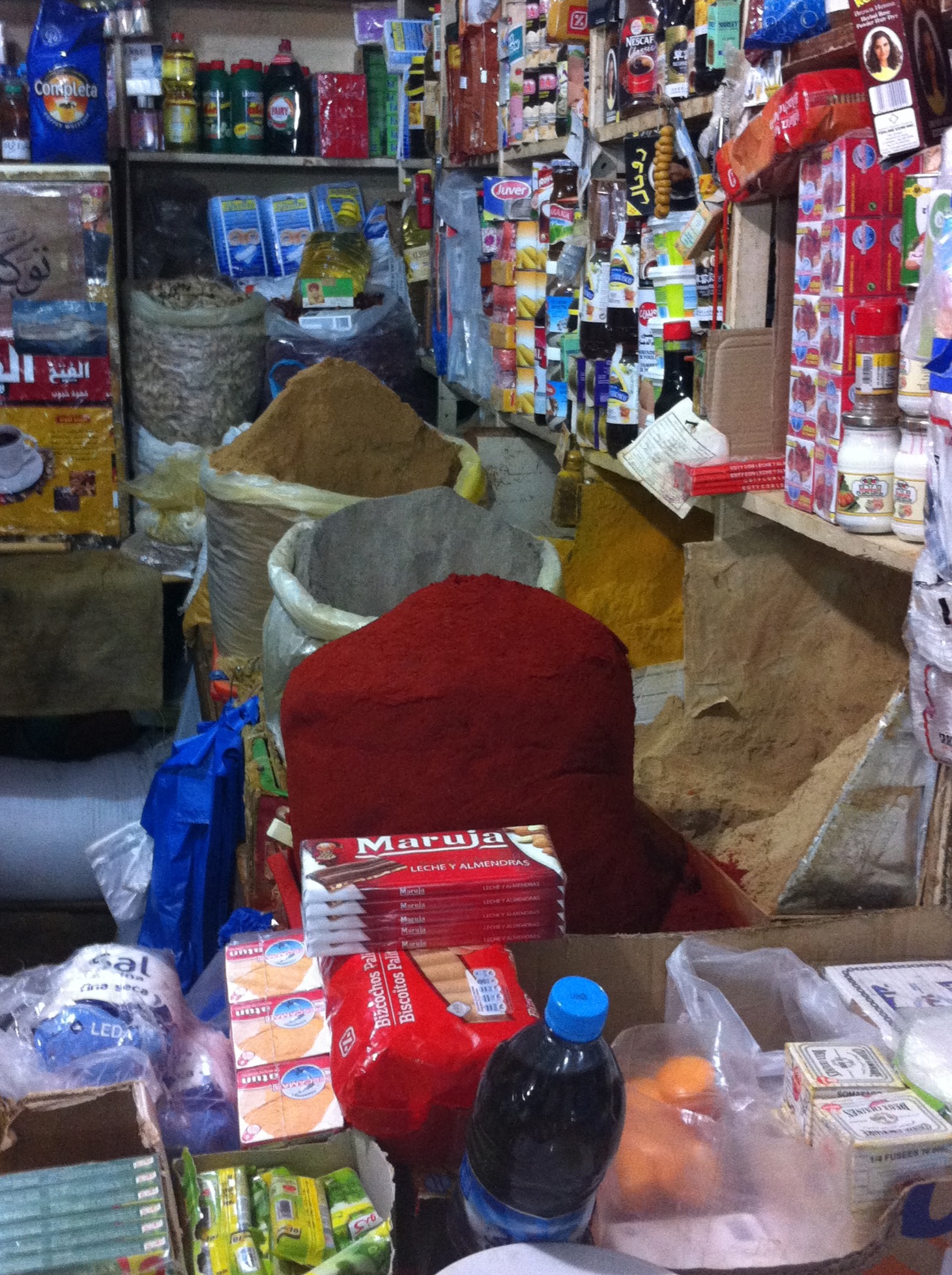 In Nador the zoco almost overwhelms the senses. Colours and smells abound. Huge mounds of unknown spices and unrecognisable fruit, stalls of tat and of treasures, barrels of olives, baskets of dates. Lunch is couscous, as it should be here, in a small back-street restaurant showing a football match between Newcastle and Liverpool while two ten-year olds outside argue over which of them can be Stephen Gerrard in their kick-about.
In Nador the zoco almost overwhelms the senses. Colours and smells abound. Huge mounds of unknown spices and unrecognisable fruit, stalls of tat and of treasures, barrels of olives, baskets of dates. Lunch is couscous, as it should be here, in a small back-street restaurant showing a football match between Newcastle and Liverpool while two ten-year olds outside argue over which of them can be Stephen Gerrard in their kick-about. 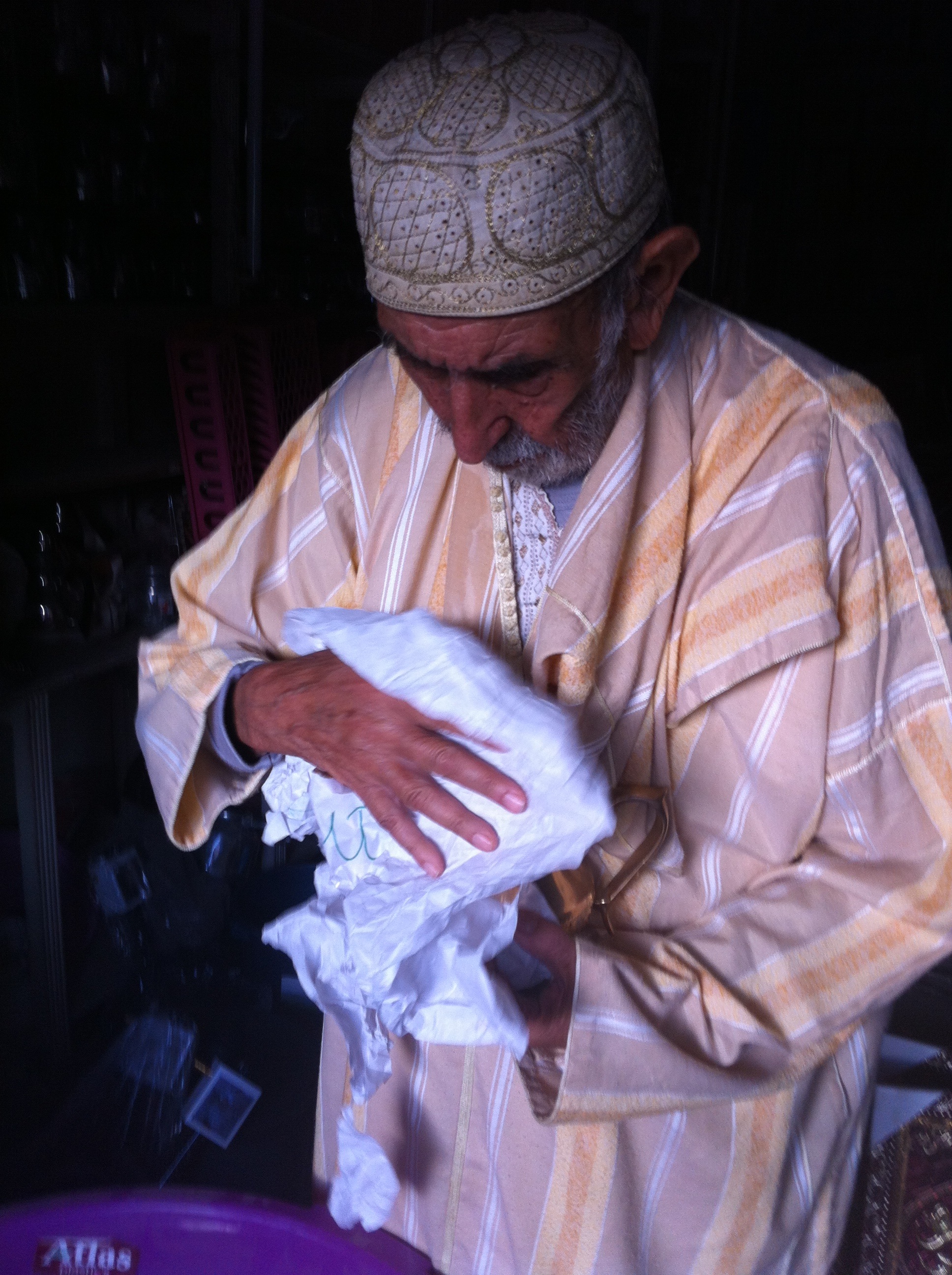 After lunch we return to the tiny shop where an old man was hand-crafting copper teteras. He sneakily adds 20 dirhams to the price he'd quoted that morning. I ignore it and put down 120 as agreed. He mutters something about 14 grandchildren to feed and reaches for the tattiest piece of paper in the known universe to wrap my teapot.
After lunch we return to the tiny shop where an old man was hand-crafting copper teteras. He sneakily adds 20 dirhams to the price he'd quoted that morning. I ignore it and put down 120 as agreed. He mutters something about 14 grandchildren to feed and reaches for the tattiest piece of paper in the known universe to wrap my teapot.
Along the 10km journey back from Nador the views are impressive. The road winds between the blue Mediterranean sea on the right and the peaks of the Rif mountains on the left. Not far from the road you can occasionally glimpse camps. Camps of people who have already travelled thousands of miles from sub-Saharan countries such as Mali, Gambia, Cameroon and Ghana, or from Asian countries such as Bangladesh, and have slept in sight of the border for months or even years, desperate to complete the long journey into European territory. 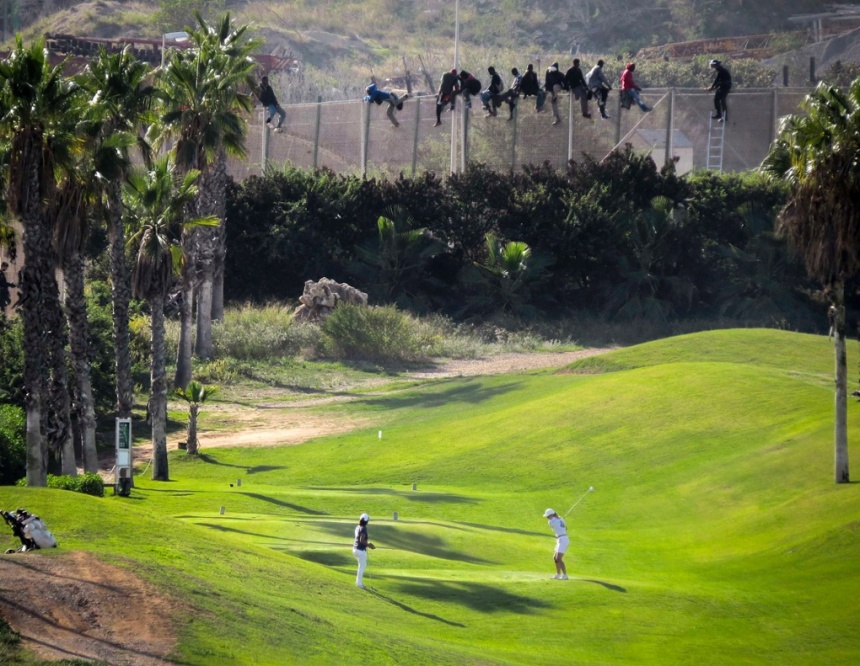 Attempts on the fence can be individual and random, or well-organised and co-ordinated. Weather forecasts are studied - a foggy night in March this year enabled a thousand Malians and Cameroonians to rush the border, despite the new third razor-wire fence and the anti-climbing mesh. Half made it through. There are attempts almost every day (always described as "assaults"). On October 21st 50 people got over using climbing hooks. On October 22nd a further 200 tried, 20 got in, while 70 were stuck for six hours on top of the fence - the stark contrast of their desperate position and the white-clad golfers below led to journalist José Palazón’s photograph going viral.
Attempts on the fence can be individual and random, or well-organised and co-ordinated. Weather forecasts are studied - a foggy night in March this year enabled a thousand Malians and Cameroonians to rush the border, despite the new third razor-wire fence and the anti-climbing mesh. Half made it through. There are attempts almost every day (always described as "assaults"). On October 21st 50 people got over using climbing hooks. On October 22nd a further 200 tried, 20 got in, while 70 were stuck for six hours on top of the fence - the stark contrast of their desperate position and the white-clad golfers below led to journalist José Palazón’s photograph going viral.
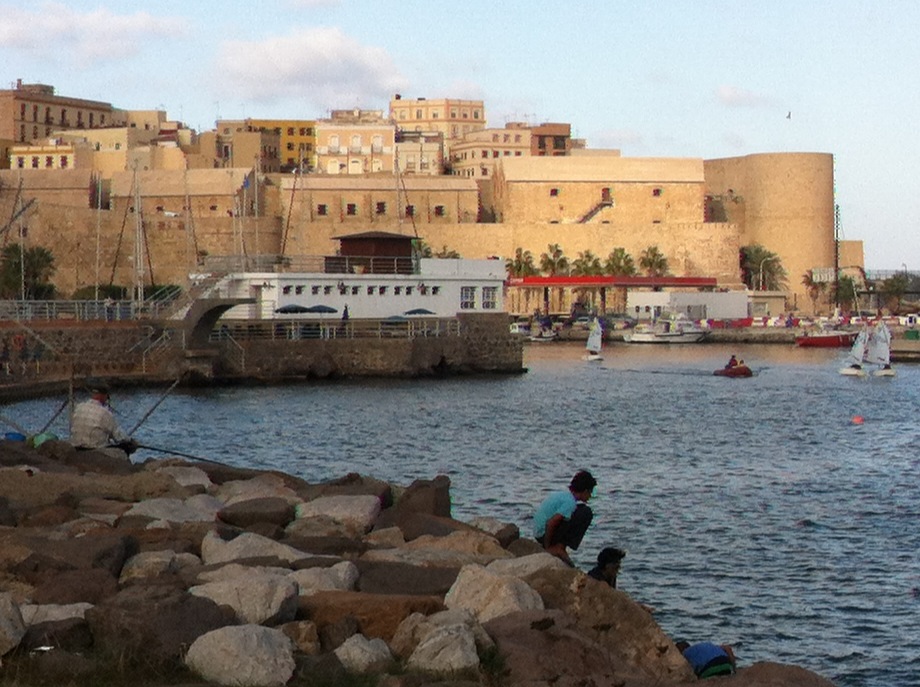 The fence and the border are not the whole story. The city of Melilla is as beautiful as the DVD said. More beautiful, in fact, as the DVD chose to underplay the rich mixture of cultures here - Arab, Jewish, Rif-Berber, Spanish, Hindu - and the variety of architecture (Melilla has fine examples of Spanish Modernista architecture, a Mezquita, a synagogue, a Hindu temple, a walled fortress with deep caves, an art déco Assembly building, and an old African food market). It is a duty-free exclave with great food in wonderful buildings. A fascinating weekend break. But the fence is there, 6-7 metres high, surrounding the city, creeping into the consciousness, and encompassing the experience.
The fence and the border are not the whole story. The city of Melilla is as beautiful as the DVD said. More beautiful, in fact, as the DVD chose to underplay the rich mixture of cultures here - Arab, Jewish, Rif-Berber, Spanish, Hindu - and the variety of architecture (Melilla has fine examples of Spanish Modernista architecture, a Mezquita, a synagogue, a Hindu temple, a walled fortress with deep caves, an art déco Assembly building, and an old African food market). It is a duty-free exclave with great food in wonderful buildings. A fascinating weekend break. But the fence is there, 6-7 metres high, surrounding the city, creeping into the consciousness, and encompassing the experience.
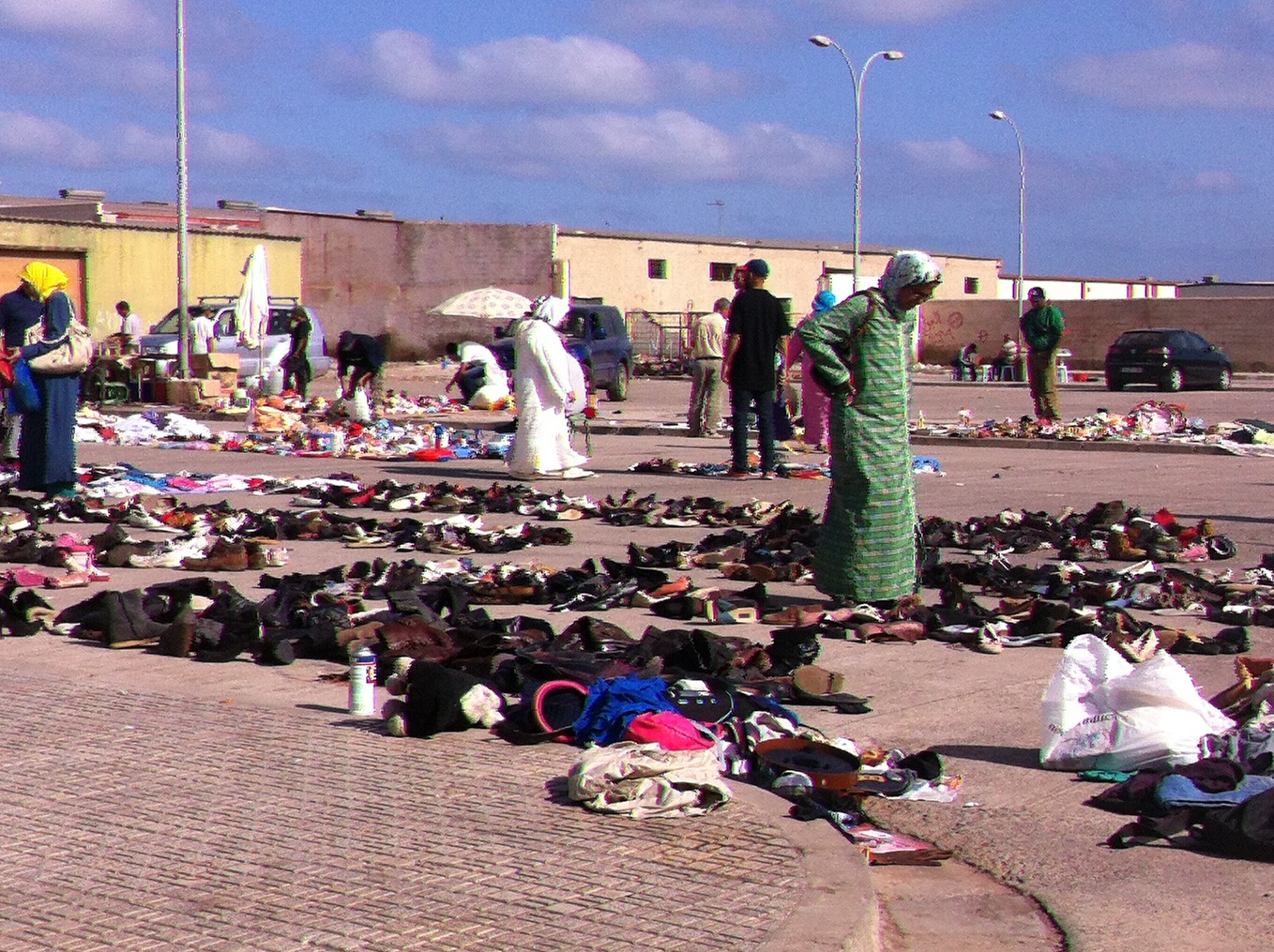 Returning from Nador you try to forget the faces of the people desperate to get onto your taxi, the people laying out blankets of their possessions desperate to sell something or to exchange it for food. People with dreams of escaping misery, starvation, persecution. People desperate to follow you into Spain, dreaming of starting new lives there as you have, desperate to find food and work there.
Returning from Nador you try to forget the faces of the people desperate to get onto your taxi, the people laying out blankets of their possessions desperate to sell something or to exchange it for food. People with dreams of escaping misery, starvation, persecution. People desperate to follow you into Spain, dreaming of starting new lives there as you have, desperate to find food and work there. 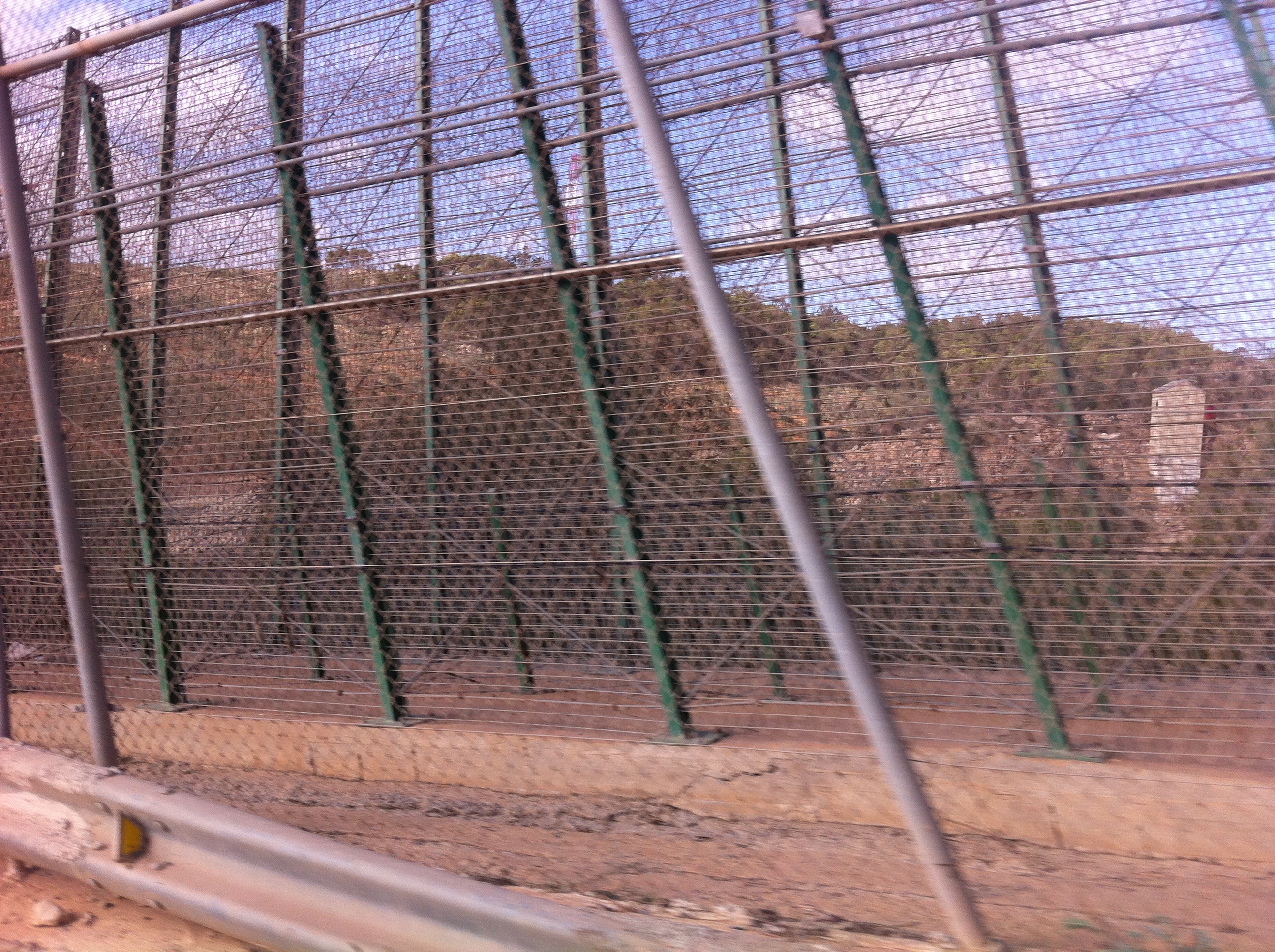 You look the other way, as there's nothing else to do. The taxi driver curls his lip and curses at those clawing at the fence, and we whizz past. Back at the border we are waved through into this odd outpost of Spain with a welcoming smile. A European passport is a thing of enormous value, so easily taken for granted - truly a passport to paradise.
You look the other way, as there's nothing else to do. The taxi driver curls his lip and curses at those clawing at the fence, and we whizz past. Back at the border we are waved through into this odd outpost of Spain with a welcoming smile. A European passport is a thing of enormous value, so easily taken for granted - truly a passport to paradise.
© Tamara Essex 2014
http://www.twocampos.com
THIS WEEK'S LANGUAGE POINT:
Firming up lots of conditionals in my mind, as I’m still cramming for the exam which is now THIS MONTH!
If I won the lottery, what would I do?
Daría parte del dinero a los pobres.
Viajaría por el mundo.
Compraría regalos para mi familia y todos mis amigos.
Celebraríamos el premio con mis amigos en un buen restaurante y pagaría todo.
It’s a useful practice exercise, and one that is easy to do in the car or while out walking, as the list is almost endless!